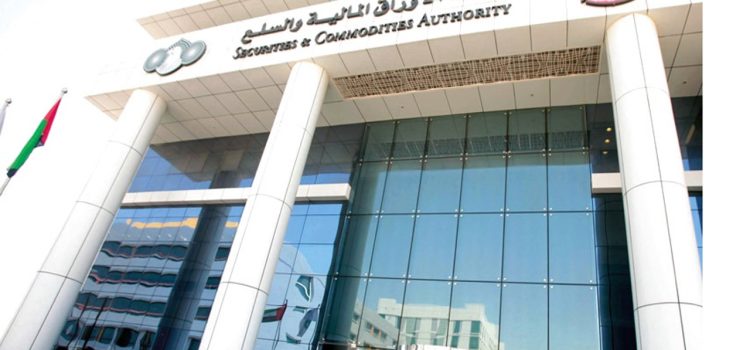According to a recent Baker McKenzie client alert, the UAE Security and Commodities Authority has issued two new regulations pertaining to virtual assets. UAE SCA will be creating a list of accepted virtual assets as well as regulations allowing already regulated financial institutions to offer virtual asset services while amending capitalization requirements for virtual asset exchanges, custodians, and brokers.
These regulations while published in Arabic were translated by Baker Mckenzie in their client report.
As per the report, the SCA has issued two new decisions, (26/RM) of 2023 in relation to Virtual Assets Platform Operators (the “SCA VA Exchange Regulations“); and Decision No. (27/RM) of 2023 amending SCA Chairman of the Board of Director’s Decision No. (13/RM) of 2021 in relation to the SCA Rulebook (the “SCA Rulebook Amendments Regulations“).
The SCA VA Exchange Regulations define VAs as a “digital representation of a value that can be traded or digitally transferred and can be used for investment purposes, and does not include digital representations of fiat currencies, securities, or other funds”.
The SCA VA Exchange Regulations clarify that VA Exchange Platform Operators will be subject to certain provisions of: the SCA Board of Director’s Decision No. (2/R) of 2001 concerning the Regulations as to Trading, Clearing, Settlement, Transfer of Ownership and Custody of Securities, as amended (the “SCA Trading & Settlement Regulations“); and the SCA Rulebook (SCA Chairman of the Board of Director’s Decision No. (13/RM) of 2021).
Samir Safar-Aly, MENA FinTech & AI Lead at the international law firm, Baker McKenzie, told Lara On the Block, “SCA is fulfilling its role as the federal level VASP regulator in the UAE. Following Cabinet Resolution No. 111 of 2022, in addition to being the UAE’s federal-level securities, commodities and capital markets regulator, SCA became the federal VASP regulator. This is a positive step towards making the UAE, as a whole, a jurisdiction with a supportive legal and regulatory framework for Virtual Assets and Crypto-related services. There are significant consumer protection and financial crime related concerns within the Virtual Assets and Crypto sector, and having a regulatory framework to support growth is what many major players in this space are often struggling to find in other jurisdictions.”
Baker Mckenzie states that the SCA have taken a similar approach to that of the DIFC’s DFSA and the ADGM’s FSRA (both of which have taken a ‘Recognized Crypto Token’ / ‘Accepted Virtual Asset’ approach) in that no VAs may be traded on such platforms unless approved on the SCA’s Official List of Virtual Assets.
UAE Cabinet Resolution 112 outlines that VARA’s decisions shall be consistent with the decisions issued by the SCA.
As for the relationship between SCA and other regulatory authorities, Samir, explains to Lara on the Block, “Under both Cabinet Resolution No. 111 and No. 112 of 2022, the relationship between SCA and other “Local Licensing Authorities” (which only includes VARA at the moment), makes it clear that the SCA would retain sole regulatory remit over “digital securities” and “digital commodities” in Onshore UAE. Separately, UAE Cabinet Resolution 112 outlined the relationship between the SCA and VARA in particular, whereby there will be joint regulatory roles between the two authorities through delegated authorities (granted to the SCA under UAE Cabinet Resolution 111) to VARA accordingly.”
As per Baker McKenzi, the second of the New SCA Regulations, amends certain provisions of the SCA Rulebook in relation to VAs and includes VAs to the list of products that may be dealt or brokered by SCA-regulated financial institutions.
The definition of ‘Brokers’, ‘Dealers of Financial Products’, ‘Financial Consultation’, ‘Portfolio Management’ and ‘Custody’ services, all now extend to and cover VAs, with relevant compliance-related obligations.
Samir explains, “Under the new SCA regulations, existing SCA-regulated financial institutions can extend their activities to Virtual Assets. However, this will need to be in collaboration with discussions with SCA to ensure that adequate systems, controls, expertise and disclosures are in place, including relevant amendments to regulatory business plans and compliance / AML policies”
Finally a new Category 7 License in relation to VASPs has been added to the SCA Rulebook, outlining the following capital requirements, a capitalization of AED 1 million plus six months of operating expenses if the activity is operating a VA Exchange Platform only; a capitalization of AED 2 million if the activity is the Brokerage of VAs; a capitalization of AED 4 million plus six months of operating expenses if the activity is the Custody of VAs; and a capitalization of AED 5 million plus six months of operating expenses if the operator of a VA Exchange Platform provides any other VA service.
As for the future, Samir expressed that both digital Securities and digital Commodities, under Cabinet Resolution No. 111 of 2022 remain in the regulatory purview of SCA in Onshore UAE including the ‘Onshore’ Dubai territory that VARA covers. He expects SCA to issue guidance relevant to such products in the near future.
As for payment tokens, Samir clarifies that this is the regulatory remit of the Central Bank of the UAE (CBUAE). When VARA issued its Rulebooks in February this year, it noticeably did not issue its Payments & Remittances Services Rulebook. He states,” I would expect this to be issued in due course once similar arrangement to those that have taken place between VARA and SCA, take place between VARA and the CBUAE.”












